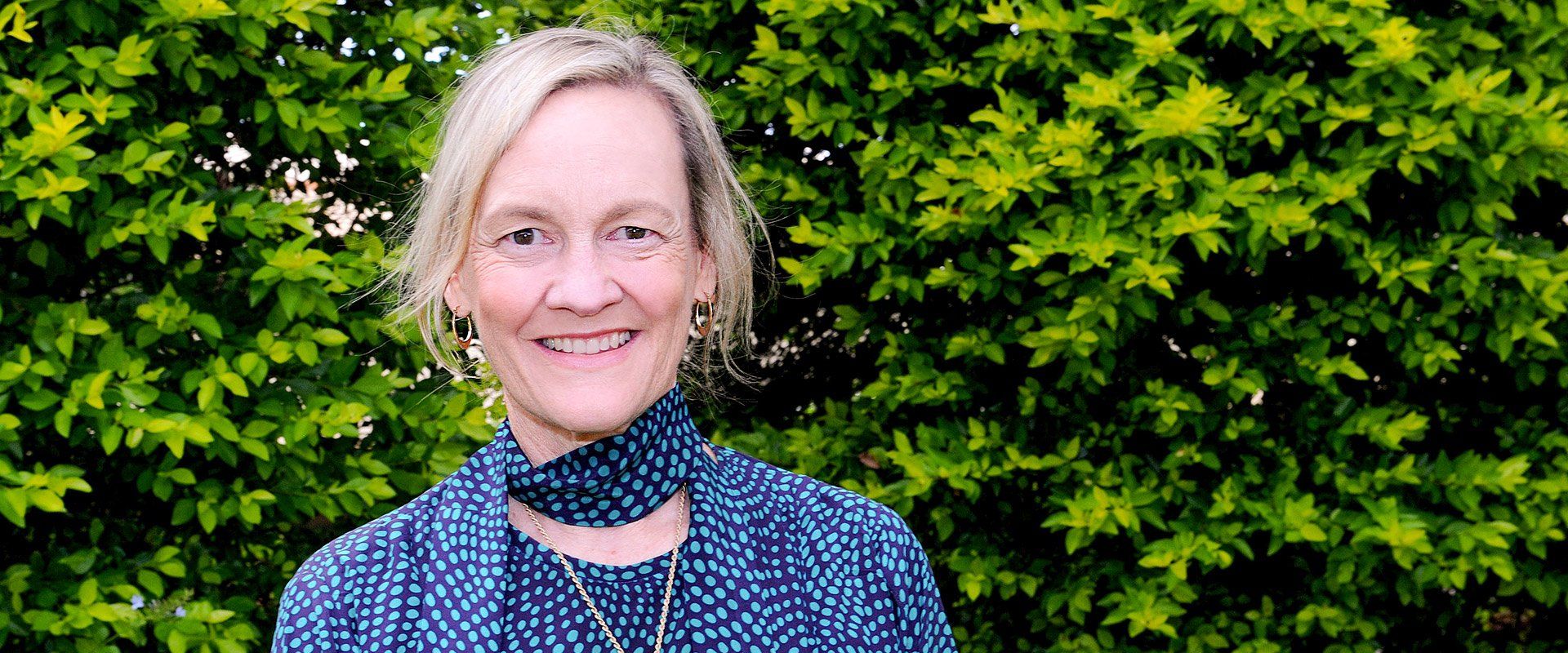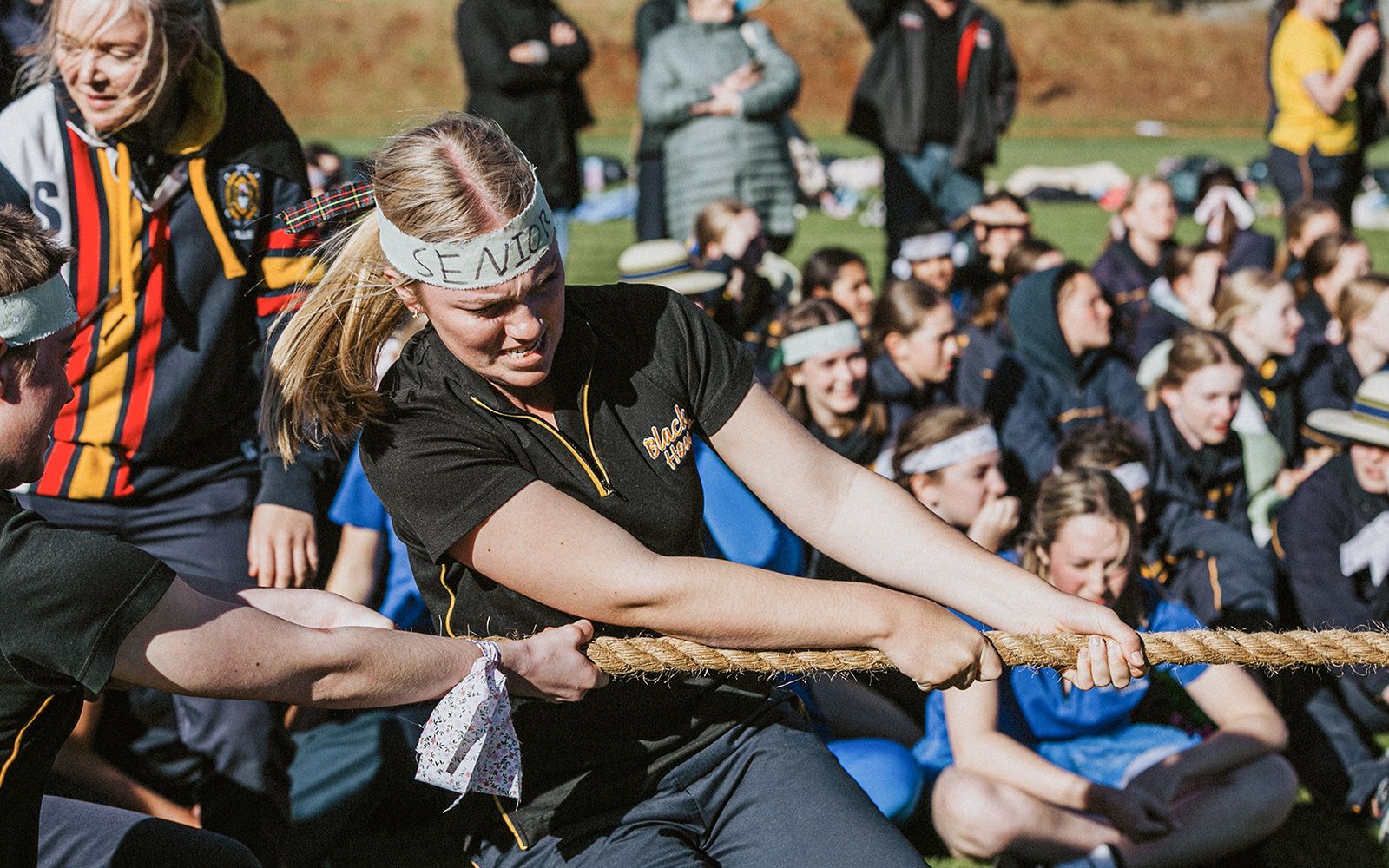
It has been nothing short of extraordinary, a testament to the dedication of our students, staff and families who make our school such a vibrant and inspiring place to learn and grow. There are many memories from this term in my first year that will linger for a time to come. The Year 6 Graduation was a beautiful celebration of our Junior School girls stepping confidently into the next chapter of their educational journey. Their music and presentation reflected maturity beyond their years and their enthusiasm about what is to come was infectious. Similarly, the Junior School Presentation Assembly showcased the incredible talent and effort of younger students. These awards remind us that success comes in many forms. At the other end of the spectrum, our Year 12 external exams ended with our glorious Valedictory dinner and assembly honouring the graduating class of 2025. These young women have left an indelible and positive mark on our school. Their leadership and camaraderie went beyond being known as our 100%ers and we know they will continue to shine brightly in their chosen paths. Beyond the classroom, our students have embraced opportunities to challenge themselves and excel. This year, our team garnered national recognition in the Future Anything showcase, where their innovative ideas placed them among the country’s best young entrepreneurs. Likewise, our Junior School Lego League newcomers impressed everyone with their creativity, research and problem-solving skills, proving that age is no barrier to innovation. Sporting achievements this month were equally inspiring. Eden Broksch claimed the title of State Tetrathlon Champion for her age bracket – a feat that speaks to determination and versatility. These successes remind us that education is not confined to textbooks. It flourishes on sports field, stages and in collaborative spaces where passion meets perseverance. The November edition of At Holme is brimming with stories that reflect the heart and soul of our community. You will read about our amazing Mrs Nichol, whose dedication to our youngest Kindy students earned her the prestigious National Excellence in Teaching Apple Award. She is a shining example of the impact great educators have on young lives. Miranda Mann, our Head Boarder, shares insights into the unique experience of living and learning on campus, offering a glimpse into the bonds that make boarding life so special. We also celebrate Mariam Nabizada who was named Lion’s Youth of the Year for the Wilsonton club, a recognition of leadership and service that embodies our school values. These individual achievements, alongside team triumphs, weave a narrative of excellence that is both humbling and inspiring. What makes these accomplishments truly meaningful is the sense of community that underpins them. Parents, teacher and friends have all played a role in nurturing talent and encouraging ambition. Whether cheering from the sidelines, guiding through challenges, or simply offering words of support, our collective efforts have created an environment where every student can burn yet flourish. As we close the chapter on 2025, on behalf of the entire staff, I extend my heartfelt thanks to our families, Old Girls and broader community for your unwavering support and partnership. It is through value of collaboration that we continue to build Fairholme as a school where character is nurtured alongside a commitment to excellence in whatever we do. I wish each of you a Merry Christmas and restful summer break, as the festive season approaches. May this holiday bring time for relaxation, laughter and connection with loved ones. We look forward to welcoming you back in the new year, ready to embrace fresh opportunities and challenges with the same spirit that has made 2025 so memorable. Here is to a bright and exciting 2026! Dr Leigh Hobart | Principal

As we approach the final weeks of the 2025 school year, I find myself reflecting on the strength and spirit of our school community – one that continues to be shaped by the values of faith, respect, joy, collaboration and excellence. These are not just words we teach in classrooms; they are lived experiences, woven into the fabric of our school culture and reflected in the actions of our students, staff and families. This past month has been a powerful reminder of what is means to belong to a community that values both tradition and progress. Our annual Presenting Fairholme was a celebration of academic excellence, leadership and service. It was heartening to see so many families gathered to honour the achievements of our students and to hear from our special guest speaker Tarryn Sorour (OG 2020), who reminded us of the importance of purpose and resilience in all that we do. Equally inspiring was our 2026 Leaders Induction, where we welcomed our new cohort of student leaders, led by Bronte Callachor, Miranda Mann and Alexandra Edwards. These young women have already demonstrated a deep commitment to their peers and to the broader school community. Their willingness to serve, to listen and to lead with empathy fills me with great confidence in the future of this beautiful College. Another highlight was our Spring Fair, complete with Fashion Parade, and held under clear blue skies and the gentle warmth of early spring. The wonderful weather seemed to mirror the joy and connection felt by all who attended. Families, students, staff and members of the wider community came together in a celebration that truly embodied our country values – hospitality, togetherness and appreciation for the simple pleasures of life. A particularly special part of the day was welcoming back our Old Girls, whose reunions added a rich l ayer of history and belonging to the event. After catching up with some from the class of 1995 in our beautifully refurbished FOGA Foyer, their stories, laughter and continued connection to the school reminded me that community is not just about the present – it is about honouring the past and nurturing lifelong ties. From the vibrant stalls and student performances to the shared moments over homemade treats, the day was a vivid reminder of the strength of our community and importance of nurturing relationships. It was more than just a school event – it was a reflection of who we are and the values for which we stand. In the spirit of recognising excellence, I would like to take a moment to acknowledge the outstanding student achievements, discussed further in this edition: The Fairholme Equestrian team’s hard work and dedication paid off with three of our riders achieving top three placings among the nation’s best young riders at the Interschool Equestrian Championships. Numerous other accolades were achieved from our incredible equestriennes. Our Visual Arts students continue to impress, with three of our young ladies receiving awards for the Creative Generation Excellence Awards in Visual Art program. Bron Francis will have her work displayed in the Gallery of Modern Art as part of a statewide exhibit, after winning an Excellence Award. Rory Zimmerman completing a significant milestone in the Duke of Edinburgh Award, demonstrating perseverance and leadership through adventurous journeys and community service. Mia Hall, Helen Young and Abigail Walker have received a bursary from the Empire Theatre, recognising their talent and dedication to the performing arts. And in a remarkable achievement, Mackenzi Schefe travelled to the USA with Sports Travel Australia to compete in multiple Cross-Country races. These accomplishments are not just personal triumphs – they are reflections of the values we hold dear. They show us what is possible when young people are supported by a community that believes in them. Looking ahead, we remain focused on nurturing a culture where every student feels seen, heard and valued. As our Seniors prepare and engage in their external exams, we are reminded that academic success is just one part of a much broader journey. Education, at its heart, is about building character, fostering curiosity and preparing young people to contribute meaningfully to the world around them. While we support our student in achieving their best academically, we also continue to prioritise their wellbeing, personal growth and sense of purpose – ensuring they leave our school not only well-educated, but well prepared for life. Dr Leigh Hobart | Principal
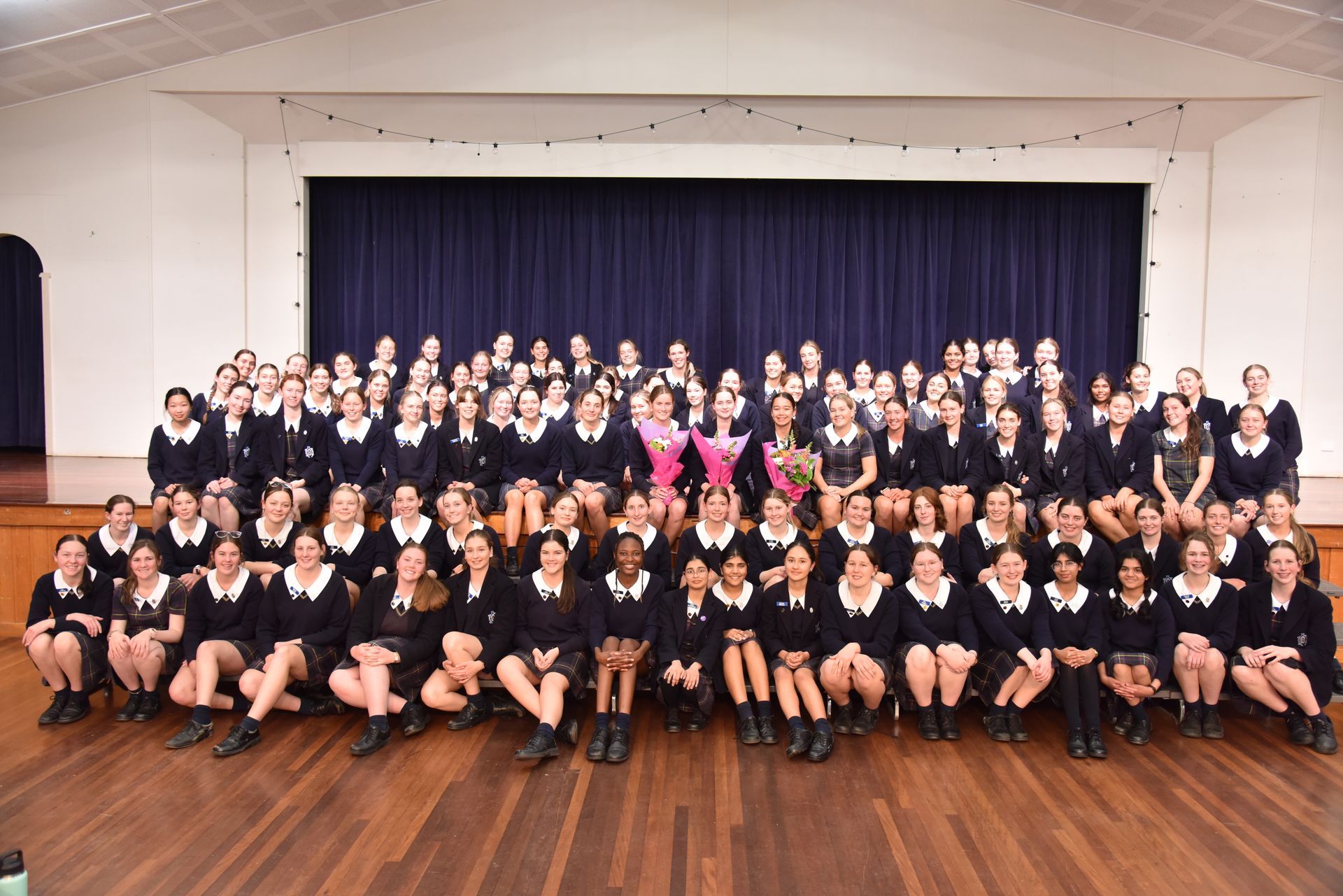
‘Young women can lead boldly, speak clearly and act decisively, and in doing so, lift others, not diminish them...’ - Dr Leigh Hobart Leadership is not just a title – it is a mindset, a commitment and a daily practice. How can I leave the world a better place? At Fairholme, we see leadership in motion every day – in the quiet moments of courage, the thoughtful decisions made with integrity and the acts of kindness that ripple through our community. It is happening in classrooms, on sporting fields, in boarding houses and in the hearts of students and staff who choose to lead with purpose. This term, we are proud to welcome our new leaders: Head Girl - Bronte Callachor; Head Day Girl - Alexandra Edwards; and Head Boarder – Miranda Mann. These young women have already shown a deep commitment to our values and a readiness to serve. Their leadership journeys are just beginning, but they are already inspiring others through their authenticity, resilience and vision. “Empowered and strengthened by female leadership…[which is] a seat at the table…kind and courageous” – Bronte Callachor. “Nothing great is ever achieved alone.” – Alexandra Edwards. “It is important to bring a sense of connection and belonging.” – Miranda Mann. Their appointments follow in the footsteps of our current Head Girls – Gracie Mack, Lucy Kilner and Katie Seaby – who have led with grace, strength and a deep sense of responsibility. Whether representing our school publicly or supporting their peers behind the scenes, they have demonstrated what it means to lead with heart and humility. Their legacy is one of kindness, courage and unwavering commitment to others. At the heart of our leadership culture is a belief that leadership is about lifting others. It’s about listening, supporting and creating space for others to thrive. Our student leaders understand that true influence comes not from authority, but from connection and service – through actions that build trust and strengthen our community. To further support and encourage leadership potential, we are excited to announce the launch of our Emerging Leaders Scholarship . This initiative is designed to recognise and nurture students who demonstrate early leadership promise – those who show initiative, empathy and a desire to make a positive impact through service. The scholarship will provide mentoring opportunities, leadership development experiences and financial support to help these students to grow into confident, capable leaders. Leadership is also thriving among our staff. This term, Mrs Pam Stains and Mrs Cath Butler have presented at the International Coalition of Girls’ Schools conference in New Zealand, sharing our work on relational pedagogy – a teaching philosophy that places relationships at the heart of learning. Their presentation showed Fairholme’s twenty year journey of building trust, empathy and connection shapes not only academic outcomes but the emotional wellbeing of students and others. It’s a powerful reminder that leadership in education is about curriculum founded in care. In Australia, leadership – especially for women – can sometimes be met with hesitation or criticism. The “tall poppy syndrome,” where individuals are cut down for standing out or striving for excellence, remains a cultural challenge. But our student leaders are rising above it. They are showing that ambition, confidence and compassion are not mutually exclusive. They are proving that young women can lead boldly, speak clearly and act decisively – and that doing so lifts others, not diminishes them. This matters more than ever. According to the Australian Workplace Gender Equality Agency (2025), women hold just 21.9% of CEO roles and have a 21.8% gender pay gap in the private sector. By empowering young women to lead now, we are helping to shift those statistics for the future. Our Head Girls are not just leading – they are role modelling what is possible. Leadership is not always easy. It often requires making tough decisions, standing firm in values, and choosing kindness even when it is not the easiest path. But it is in these moments that true leadership is revealed – not in titles, but in actions. We see it in the student who speaks up for a peer. In the teacher who adapts a lesson to meet every learner. In the boarder who comforts a homesick friend. These everyday acts of leadership shape our culture and strengthen our community. As we celebrate our new student leaders and honour those who have come before them, we also affirm our commitment to nurturing leadership in all its forms. We encourage our students to step forward, speak up and lead with courage. We challenge the norms that say leadership must look a certain way and instead embrace the diversity of voices, experiences and strengths that make our school vibrant. Leadership is happening all around us. Let us continue to notice it, nurture it and celebrate it. Dr Leigh Hobart | Principal
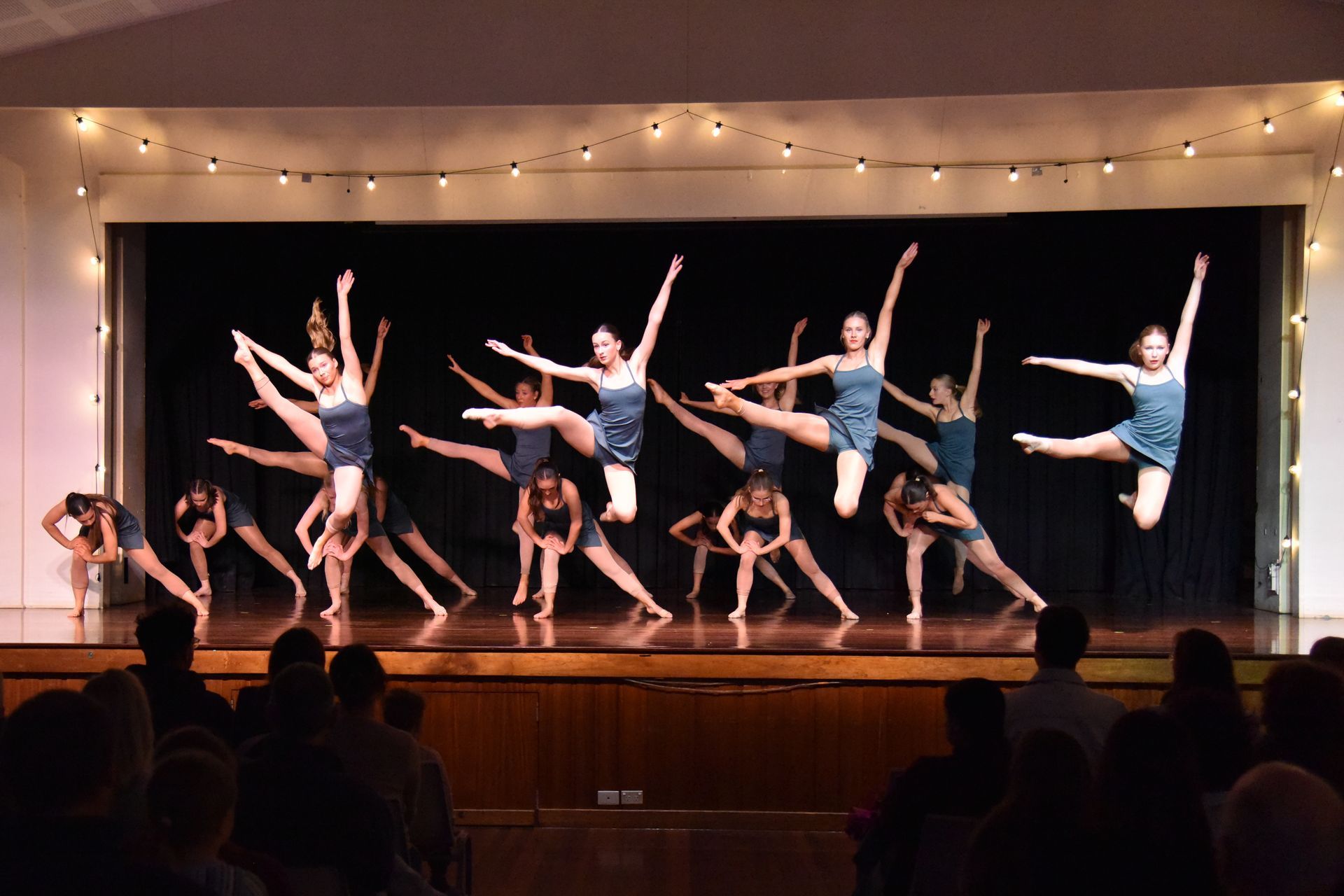
‘Excellence is not about perfection or about being the very best in every field. Rather, it is about improvement – about growing steadily, intentionally and purposefully’ - Dr Leigh Hobart As the seasons turn and students move from winter to summer uniforms, we are reminded of the value or presentation and pride. Wearing our uniform well is not a trivial detail; it is a daily act of discipline, a small expression of excellence. Excellence, after all, is not a singe event or an isolated triumph, but the cumulative result of consistent, deliberate choices made day by day. At Fairholme, we speak often of striving for excellence. But what does that really mean? Excellence is not about perfection or about being the very best in every field. Rather, it is about improvement – about growing steadily, intentionally and purposefully. Sir Dave Brailsford, former Performance Director of British Cycling, captured this idea with his philosophy of ‘marginal gains’. He believed that if you could improve every area of performance by just 1%, those small gains would compound into remarkable results. His athletes focused not only on cycling technique and training but also on sleep, nutrition, recovery, equipment, and even how they washed their hands to avoid illness. Over time, those tiny improvements led to extraordinary success: Olympic medals and Tour de France victories. The beauty of this principle is that it applies far beyond elite sport. It is just as relevant to the classroom, the stage, the debating chamber, or even the way we wear our uniforms each day. A single day’s improvement might feel minor – a more carefully written essay, a sharper argument in debate, a deeper effort at training, or the decision to present oneself neatly and proudly. But over weeks, terms and years, those daily gains accumulate into excellence. In recent weeks, we have seen countless examples of this pursuit across our College. Our Year 12s celebrating their final 100 days of school, stands as living proof of the growth that steady, disciplined effort produces over time. Achievements on the sporting field – from Ella’s softball prowess representing the Green and Gold in the USA to the successes of our High Performance Sports Program – remind us that resilience and incremental improvement are the hallmarks of true performance. Our Year 7 Debating team’s grand final victory, the continued expansion of robotics as an offering, to the creativity on display for our Grandparents and visitors during Book Week, all show the same truth; excellence is built through persistence, preparation and the willingness to keep improving. The trophies and accolades are important, but the deeper value lies in the habits that made them possible. This is why I return to Brailsford’s lesson. Excellence is not reserved for the few with exceptional gifts. It is within reach of every student, in every classroom, on every field, in every rehearsal. The challenge – and the opportunity – is to make a conscious choice each day to improve, even in a small way. As parents, educators and supporters, we can help by affirming effort as much as outcome, and by modelling the pursuit of excellence in our own lives. If our young women can learn that excellence comes not from grand gestures but from steady, incremental improvement, they will be equipped for success well beyond their school years. So, as we step into the new season of Spring, may we each commit to the pursuit of excellence in our own way. Let us honour our achievements while remembering that excellence is not a moment, but a mindset. Excellence begins with the small things. It is in how we learn, how we play, how we create, how we present ourselves and how we treat others. Let us encourage our young women to keep building the daily habits that, compounded over time, will lead them to extraordinary futures. Dr Leigh Hobart | Principal
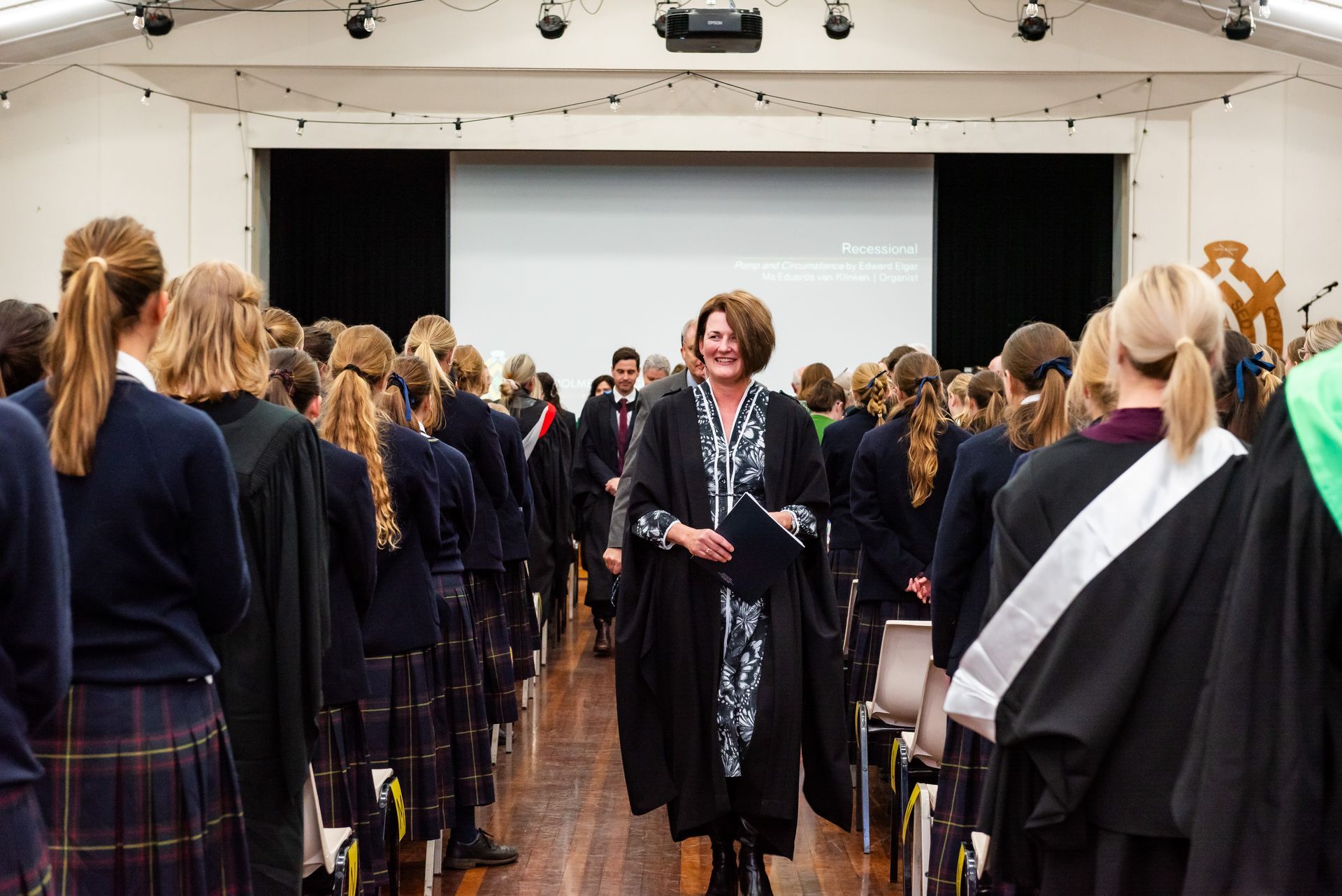
‘Your daughters are not just participants in the Fairholme story – they are its authors. As they learn, lead, stumble and soar, they bring to life the values that underpin our College: Christ-centred faith, collaboration, respect, enjoyment and the pursuit of excellence.’ It is both an honour and privilege to write to you in my first formal newsletter as the 15th Principal of Fairholme College after the induction ceremony earlier this week. While I have already enjoyed a term within this vibrant and welcoming community, this moment still marks a new beginning – not only for me, but for Fairholme, and for the journey we now take together. And yet, as with all new beginnings, this moment is shaped and strengthened by what has come before – by the faith and vision of our founders, by the commitment of my predecessors, by the unwavering trust of our families, and by the many young women who have called Fairholme home over generations. More than anything, I want to acknowledge the young women of Fairholme. Because your daughters are the reason we are here. Their energy, insight, curiosity, laughter and growth – these are the heartbeat of our College. Every day, they remind us why our work matters. Every day they challenge us to lead with purpose, to teach with integrity and to shape a learning culture grounded in care and high expectation. Your daughters are not just participants in the Fairholme story – they are its authors. As they learn, lead, stumble and soar, they bring to life the values that underpin our College: Christcentred faith, collaboration, respect, enjoyment and the pursuit of excellence. I want to pause here, in particular, on the value of excellence. At Fairholme, we understand excellence not as perfection or external accolades, but as the ongoing commitment to growth, effort and wholehearted participation. It is about doing our best with the gifts we have been given – in the classroom, on the field, in music ensembles, through service and in relationships with one another. This edition of At Holme is filled with examples of students doing just that. From Alexandra Edwards excelling in orienteering to Mariam Nabizada who has acted in service and stepped forward to represent their peers in Youth Parliament. Each of these achievements reflects a deep commitment to excellence and to personal growth. I congratulate each student involved and celebrate what their accomplishments say about our community’s shared vision. What makes these moments even more meaningful is that they don’t happen in isolation. One of the most powerful things we witness at Fairholme is the joy that comes when girls find their kindred spirits – those who share their passions, encourage their development, and offer the kind of friendship that brings out their best. Whether it’s in the science lab, the boarding house, the chapel, or the choir room, your daughters are discovering the transformative power of belonging and striving to be better. A visiting educator recently captured this beautifully after the induction ceremony where the boys from Brisbane Boys’ College sang alongside our own amazing choir: ‘Finding kindred spirits is a fantastic thing…I met a lovely young woman…who sang a William Byrd motet with bright and engaged friends next to her, in a culture of beauty, support, bravery and optimism…the strands of time and place came together in a bright flash of human flourishing and furtherment. That’s core business in my view.’ That is our core business – not only providing an excellent education but nurturing the whole experience of each girl. We are deeply committed to shaping women of wisdom, strength and compassion who will be ready to lead, serve and contribute meaningfully to the world beyond Fairholme. The verse chosen for our recent induction service speaks directly to that hope: “Blessed is the one who finds wisdom, and the one who gets understanding.” - Proverbs 3:13 True wisdom is more than knowledge. It is compassion in action, it is leadership grounded in humility, and it is the courage to listen and respond with grace. These are the qualities we aim to nurture in your daughters – and in ourselves. It is a joy to see that growth in action. Whether it is a prep student offering high fives at the front gate, or senior students leading younger students with quiet confidence and care. It is in the joy of a performance, the grit of training, the curiosity in solving a problem, or the resilience shown in difficult moments. These are enduring, formative experience – the kind that shape character, strengthen purpose and prepare young women for lives of meaning and impact. Thank you, parents, for your trust, your partnership, and your confidence in our care. The privilege of educating your daughters is not lost on us. It is a sacred responsibility and a joyful one. As part of the induction service, I committed to continuing the legacy of strong leadership that began with Margaret Cameron and Miss Amy Carson and has been shaped by many since. Together with staff, students, and families, I look forward to building upon the strengths of Fairholme while embracing opportunities for innovation, connection and growth. Fairholme is a school with heart – one that beats with faith, hope and love. As we look to the future, I do so with great confidence. Not because the path will always be easy, but because I know we will walk it together. May we continue to seek wisdom. May we deepen our understanding. And may we – as a Fairholme family – be richly blessed. Dr Leigh Hobart | Principal
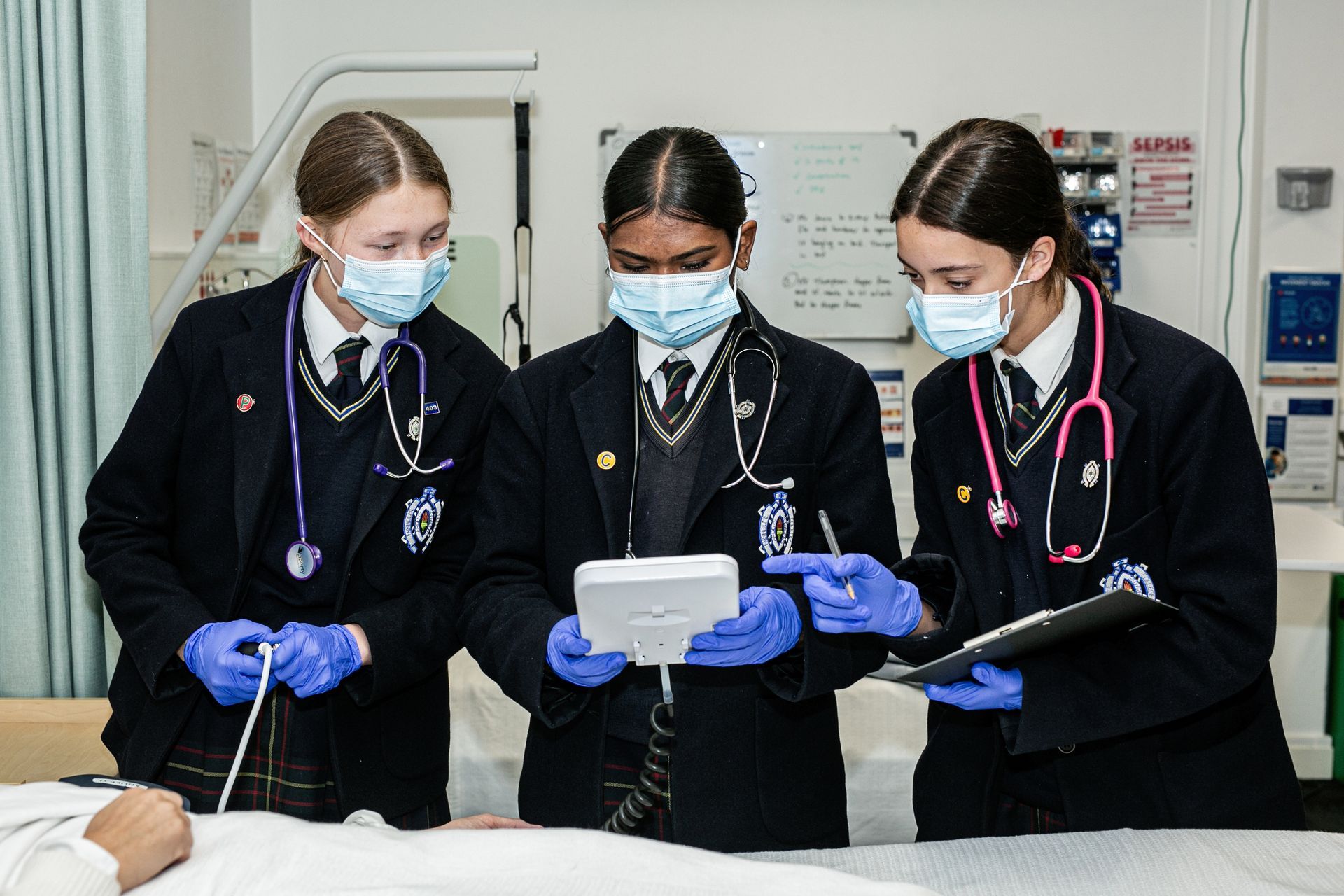
As a regional centre, Toowoomba has long been known for its charm, heritage and lifestyle – but in recent years, it has also become one of Queensland’s most exciting and dynamic growth corridors. After listening to demographer, Simon Kuestenmacher, recently, Toowoomba has a growing importance as Australia’s second largest regional hub, reflected by both population growth and economic data. For families choosing to live and educate their children in this region, there is much to celebrate – and a great reason to be optimistic about the future. Over recent weeks, I had the great honour of attending the ICPA (Isolated Children’s Parens’ Association) State Conference in St George – an inspiring gathering of parents, educators and community leaders passionate about ensuring equity in education for rural and remote students. What struck me most was the deep commitment to connection – to building strong pathways for children no matter where they live, and to strengthening the regions that sustain them. This theme could not be more relevant. Our city continues to experience significant population growth, attracting families not only from metropolitan areas but also from across Northern New South Wales. As the gateway to the Darling Downs and the south-west, Toowoomba services a vast catchment and this demand is driving impressive investment in infrastructure and opportunity, particularly in the health sector. Healthcare is currently the largest employer in the Toowoomba region, accounting for one in every five local jobs. That’s 20% of our regional workforce engaged in caring for others (Toowoomba Regional Council Economic Profile, 2023/4). This is only growing. With the new Toowoomba Hospital on the horizon (Queensland Government Darling Downs Health, 2025) and an ever-increasing demand to service areas throughout Queensland and Northern New South Wales, the need for dedicated, well-trained health professional has never been more urgent. And yet, as health services expand, there is a growing shortage o f workers – particularly in nursing, allied health, mental health and aged care. The good news is that regional students who study and train locally are far more likely to stay, live and work in those same communities (Regional Universities Network, NA). They – the young women in our classrooms now – are the future of our region. That is why I am so proud of the work happening in our College’s Health Hub. This innovative space is more than just a classroom – it is a launch pad. It’s where curiosity meets compassion and where students begin to imagine how they might make a positive impact. In 2024, Health was the single largest study area for our students – a strong sign that our young women are listening to the needs of their community and leaning into service. Our partnership program with Mater Education and on-the job options with STATIM Regional Health Solutions is already providing students with real work learning opportunities and micro credentialling to give them a head start with their future pathways. I recently received one of the loveliest letters I have e ver received in my time as an educator, from a grateful son whose mother had been provided care by one of our girls during work experience. He shared that ‘although this student’s genuine kindness is exceptional to our mind, I have no doubt that it is indicative of the values that are instilled in your Fairholme students more generally.’ With over a dozen of our current Year 12 girls eagerly preparing to sit their medical entry exams through UCAT preparations, this touching tribute to our students and staff could not be more fitting. With a rapidly changing world, there is no doubt that health remains one of the most stable and essential sectors – both now and into the future. But more than that, it is a deeply human profession. Whether our graduates go on to become doctors, nurses, paramedics, allied health professionals or researchers, we know they will be making an impact that matters. Toowoomba is not just growing - it is thriving. And as educators, we are excited to be helping shape a generation who will contribute meaningfully to that growth. Our College is proud to stand at the intersection of education, innovation and community service. To each of our families - thank you. Thank you for the sacrifices you make, the values you instil and the trust you place in us. The ICPA reminded me once again of the strength that exists in our rural and regional families - and of how important it is that our schools honour that strength with opportunity. The future looks bright – and I have every confidence it will be even brighter with our graduates at the helm. Have a restful break and I look forward to seeing you and your daughters back for an exciting and inspiring second semester. Dr Leigh Hobart Principal
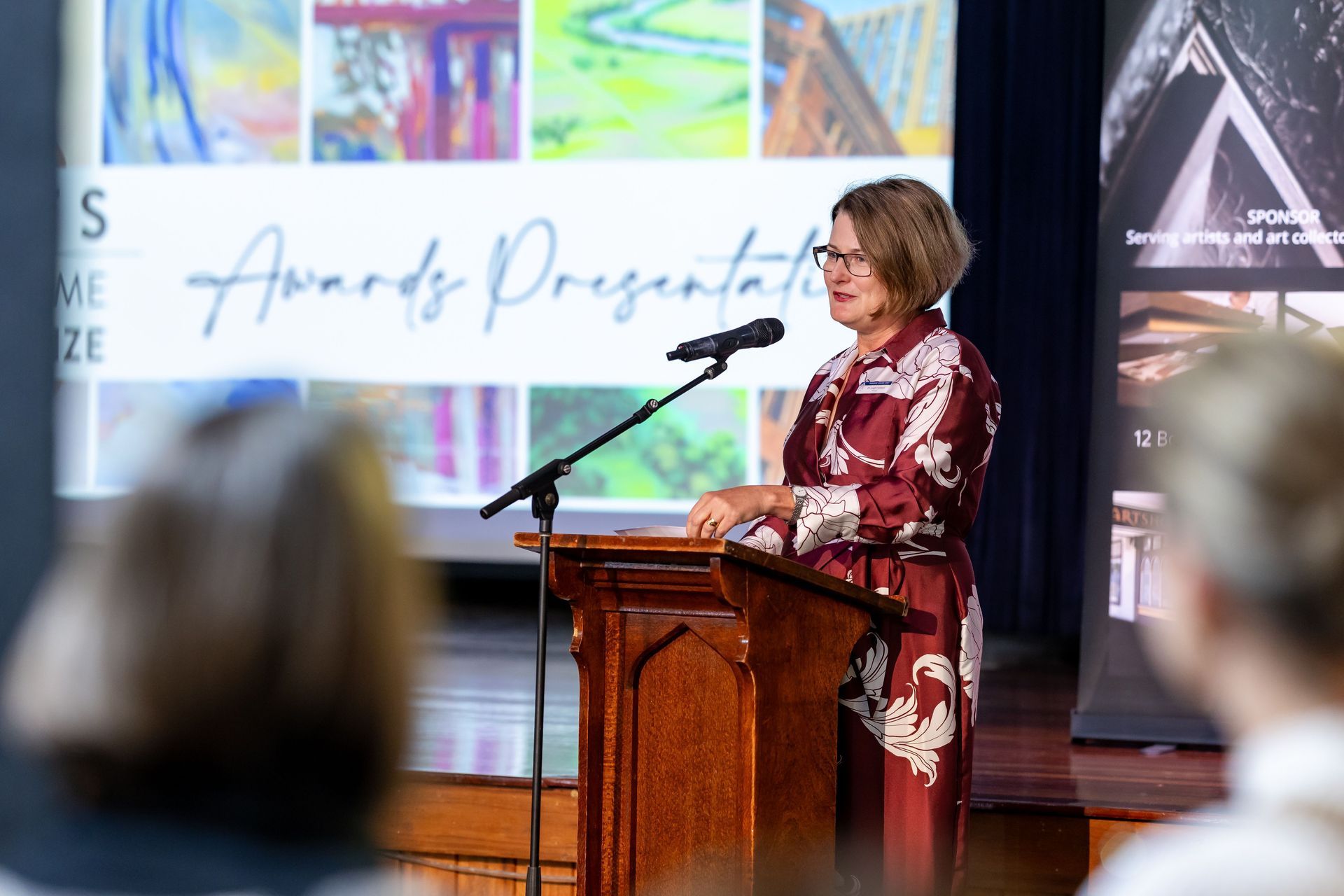
What an extraordinary joy and privilege it is to write to you as the 14th Principal of this exceptional school. From the moment I stepped onto the campus, I have been welcomed with warmth, grace, and an unmistakable sense of belonging. The smiles of the students, the genuine conversations with parents, and the deep care shown by staff all speak to a school community that is not only thriving but grounded in something truly special. Moving to the Darling Downs has, in many ways, felt like coming home. I was brought up in the country and the values I learned as a child – authenticity, resilience, kindness, and a strong sense of responsibility to one another – are the same values I see woven through the tartan of this College. They are lived daily through the actions of our students and staff, especially our boarders whose strength of character and sense of connection enrich the whole school. Celebrating National Boarders Week recently was a wonderful opportunity to acknowledge the significant place boarding holds in our history and in our hearts. The stories, spirit and laughter that filled the week were a beautiful reminder of the importance of community and belonging. In just a short time, I’ve been privilege to witness the heart of this school in action. The recent FACETS Art Show was a perfect example – a celebration of creativity, courage, and excellence. To walk through the gallery and see the work of the artists, including our students, was to be inspired by their talent and joy. Excellence here is not simply about achievement, but about growth, engagement, and the pursuit of God-given potential. This is a school that understands the importance of enjoyment in learning – and in life. Our Christian-centred faith is the foundation upon which everything stands. It informs our approach to care, character, and community. It reminds us of the worth of every individual, the hope we carry into each day and the call to live our lives with purpose and service. I see this in the way our students support one another and in the respectful and nurturing relationships that define our school culture. Faith here is not an add-on, it is the lens through which we view education, leadership, and life. I have been deeply moved by the commitment and passion of our staff. It is evident that this is more than a workplace – it is a vocation. The love they have for the school, for their students and for their craft is palpable. It is the careful planning lessons, the words of encouragement, the coaching in the early (or late!) hours and the quiet presence beside a student in need. Their collaboration and tireless dedication make this a place where young women are empowered, supported, and celebrated. As I look towards the future, I am filled with optimism and hope. This is a school grounded in strong traditions and clear values, yet one that is not afraid to embrace innovation in how we teach, care, and grow. With a rich sense of purpose and a commitment to excellence, collaboration, respect, and joy, we will continue to nurture a community where every student can thrive. As John Steinbeck is attributed to writing, 'A great teacher is a great artist… teaching might even be the greatest of the arts since the medium is the human mind and spirit.' I believe the same can be said of leadership in schools. It is both a privilege and responsibility to walk alongside young people as they discover who they are and who they are becoming. I look forward to sharing in that journey with you and building upon the remarkable legacy of this community, together. Dr Leigh Hobart | Principal
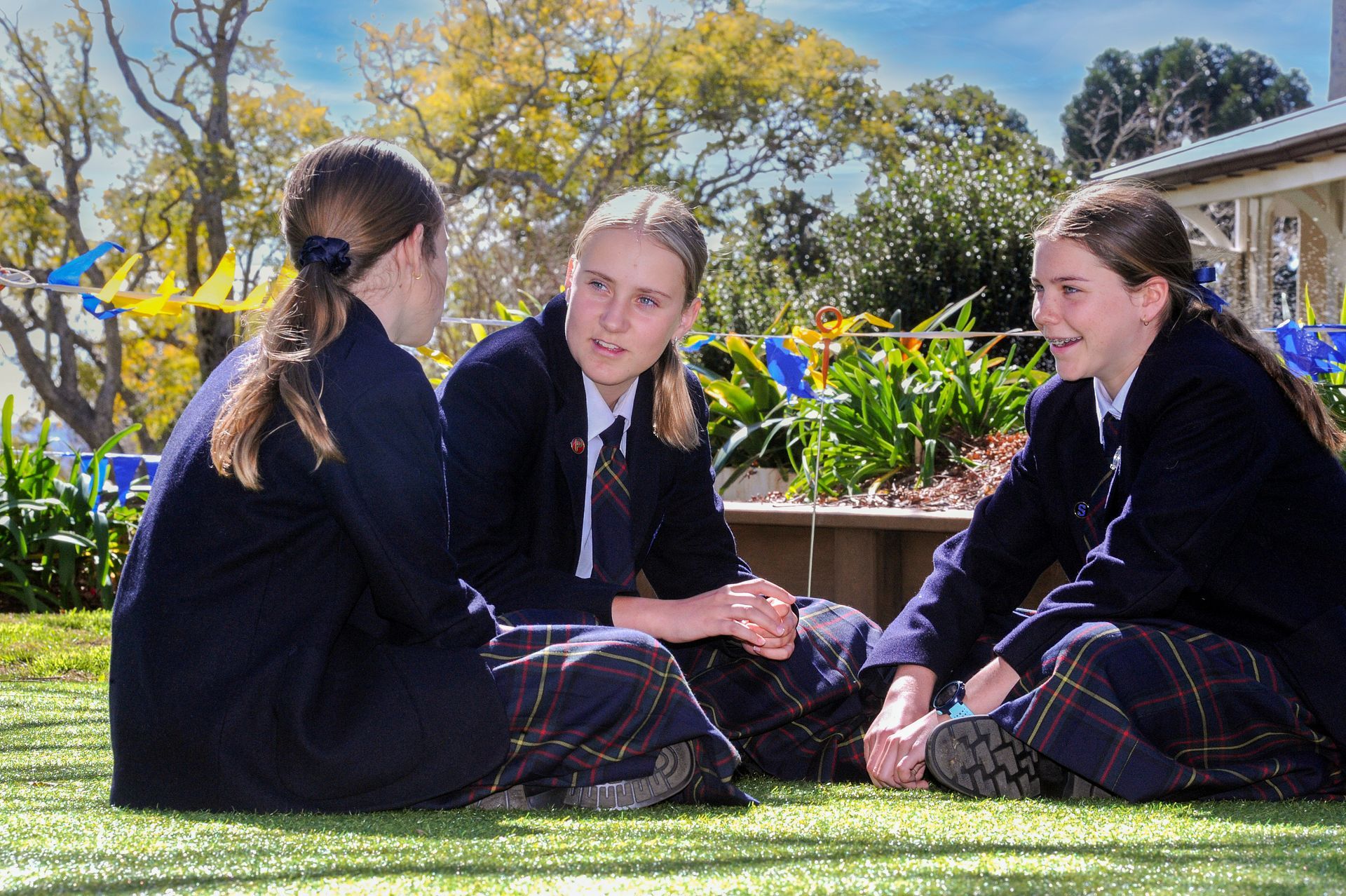
Becoming empathetic, responsible, relational and accountable... Words matter. Lessons in accountability are gifts for life. They are lessons we value here at Fairholme, where one of our five core values: respect is grown through many factors, including through the philosophy of restorative practices. It’s been the Fairholme way for more than two decades, its sited in the notion of accountability for actions, fixing problems respectfully and moving forward. It is not a quick fix because restorative practices is not something we do, it is about becoming… becoming empathetic, responsible, relational and accountable: tough lessons that take time to learn and appreciate. These lessons are bound through a worldview of “working with” rather than “power over.” For some it’s a big shift in how we see behaviour, how we see children and how we see ourselves. American psychologist, Ross Greene says that “we have forgotten that those skills on the more positive side of human nature have to be taught, have to be modelled, have to be practiced.” At a previous school I found myself meeting with a mother and son regarding the misalignment between his approach in class, his capability and his results. This was a chronically underachieving highly academically capable young man, unable to meet the expectations of the classroom. Contrastingly, he had two older sisters who had been engaged, hard-working students, high-achievers. His teachers were deeply frustrated and offended by Mark’s (not his real name) behaviour. I was told by some that this behaviour was mirrored at home. I reminded myself that such information was third hand – second hand at best. Yet, I knew from some reliable sources (their neighbours were also on staff) that things were tricky at home. I was keen to sit with his parents and the young man and plot a way forward. I was keen for a learning conversation around accountability, and importantly a respectful plan to move ahead in a better direction, with support. I was naively hopeful about the outcomes. Like all ‘perfect’ conversations that we prepare in our head, it ran in a vastly different direction. Such a different direction that more than a quarter of a century later, I can still recollect aspects of the meeting and I have remonstrated myself many times over the years about what I “could have/should have” done differently, better, more effectively. Mum arrived with Mark, no dad – it would seem that education remains, too often, the province of the mother. Things got off to an immediately bad start: Mother: I am so surprised that you have asked us in to discuss Mark’s results and his behaviour. Quite frankly, my husband and I think that this is about Mark’s teachers, not Mark. His sisters think so too. We simply don’t believe that he is the problem – your teachers are. We don’t see any of this behaviour that’s been described, at home. He is such a good kid, a perfect kid, really. Me: Thanks for that. Gosh, no problems at home? Then that is challenging – perfect behaviour at home and an inability to meet our expectations at school – in any of his classes. What do you think is happening? What can we do to get more of Mark’s home behaviour, here at school? Fortunately, memory has erased the full script of the conversation as it unfolded. Needless to say, we didn’t reach the sort of agreement or understanding I was thirsting for. And what came to pass was that this young man’s poor behaviour entered the public arena, the police arena, the legal arena on a number of occasions into the future. On hearing of this, each time, I replayed our conversation and winced, I felt a degree of responsibility for my own part in an unsuccessful conversation. I also pondered about the message Mark heard when his mother said, “His behaviour at home is perfect.” Because, in that moment he had his personal accountability snatched away. And Mark learned, through those words, that in a public forum, in the face of an authority figure, his mother would lie for him. Sometimes we do forget that “those skills on the more positive side of human nature have to be taught, have to be modelled, have to be practiced.” (Greene) Before we get too self-righteous, Greene also reminds us that “the kids we often find most difficult are the kids who need our empathy the most.” Words matter. Lessons in accountability are gifts for life. But empathy needs to be our first step, always. Dr Linda Evans | Principal REFERENCES Greene, R. (n.d.) Lives in the Balance. Accessed February 15, 2025. https://www.livesinthebalance.org Voigt, Adam (2020) Voigt, A. (2020). Restoring teaching: How working restoratively unleashes the teacher within. Adam Voigt.

Beginning. Starting. Commencing. What does beginning well actually look like? Sometimes when we expect a perfect start, we overlook the quiet power of simply showing up, the world is run by those who show up. Those people who never, ever ring the bell, those people who show up, even when it is hard to do so, especially when it is hard to do so. Brene Brown reminds us that “the willingness to show up changes us, it makes us a little braver each time we do.” In enacting bravery, it is important to start small if that’s what it takes. American Naval Admiral, William McRaven says this: “If you want to change the world, start off by making your bed. If you can’t do the little things right, then you will never do the big things right.” He believes in persistence. His mantra is this: don’t ever, ever ring the bell. He refers to the initial training for the United States of America Navy Sea, Air, and Land Teams the SEALS. Their initial training sees more than 80 percent of participants drop out. During this training, a brass bell hangs in the center of the room for all the students to see. If they find the work too hard. If they decide against becoming a SEAL. All they have to do to quit—is to ring the bell. Ring the bell and they no longer have to wake up at 5 o’clock. Ring the bell and they no longer have to complete freezing cold swims. Ring the bell and they no longer have to endure long runs carrying heavy weights, the obstacle courses, or to suffer the hardships of training. Just ring the bell and it’s all over. When exhausted SEAL candidates reach their breaking point, they haul themselves to the bell and ring it three times. The sound echoes through the training grounds and announces publicly that another candidate has “opted out.” All they have to do is ring the bell. Just ring the bell and the hard work stops. I wonder if Lilli Hamilton (Queensland cricketer and HEAT member) rang the bell when Cricket training no longer felt like it was fun, or if Alex Edwards (Australian Orienteering representative) opted out of orienteering because frankly, the distance was too far, or if Scarlett Sippell (Emus National Youth Touch Football Squad member) gave up because training was too tough …. what they would miss out on … When we opt out, even when it is hard, we also miss out on possibilities. There are so many opportunities at Fairholme to achieve one’s best - academically. In the Arts. In Sport. Opportunities to serve others. To be a good friend – a good person. But then again, if any of those things are too hard, all anyone has to do is – opt out. Say it’s too hard. Say they didn’t get selected in the right team. Say their teachers didn’t give them the right results. Say they weren’t given the right position. Text their parents and tell them that Fairholme is awful. All they have to do, is ring the bell. Yet, if we want to change the world, If we want to get the best out of this year at Fairholme, whatever that involves - never ever give up. Start small, aim big. Always show up. Don’t give up. Don’t ever, ever ring the bell. The most meaningful changes in life are often built in the times that no one sees, and, importantly, in the daily decision to simply show up, and to show up for others. When my daughter, Natalie was twenty-one, she began her teaching career at an Autism specialty school in Brixton, London. She would phone me often: for advice, for debriefing, for re-setting – her school was classified as being in Special Measures – it was on the brink of closure. Often, when she phoned to describe her day – to talk about the boys in her class, all aged 12 or 13, it went a little like this: “Today, Mashley threw a chair through a window because he didn’t like the activity we were doing. I had to break up a fight at lunch. Jerome pulled a knife on me. Three boys in my class have joined gangs.” I wanted to say: “Natalie: get another job. That one is too dangerous.” I wanted to fly her home from London, immediately. I had to stop the urge to board the next plane to London and rescue her. But my advice to her – was this: Show up. Keep showing up. No matter how you feel… Get up, dress up, show up: don’t give up. These kids need to know that someone cares enough to show up. After all, when we show up for others, we can affect the most profound of changes. I am always intrigued about who shows up here at Fairholme – especially at difficult times. In 2011 when floods ravaged Toowoomba and so much of Fairholme was flooded – staff showed up - in their holidays. They turned up to rip up carpets, move furniture, clean floors, and walls. Last year, in the sadness of Sess’ passing our community showed up, in droves, with deep compassion – importantly, our community showed up for one another. I think of 2024 Year 12s who showed up for others, after they had officially finished attending classes at and were preparing for or undertaking their external exams. Lizzy Kelly and Ciara Teahan showed up to play in the stage band, for the Year 11 Leaders Assembly, so that the group could perform at its best. Roma Aarons came to an Assembly in November to share a fabulous rendition of ‘Hotel California’. On a Sunday morning, early in December, graduated students Rachel Yap, Alana Callaghan, Amelia Ramia and Roma Aarons, showed up at Rosies to prepare food for Toowoomba people who don’t have easy access to basic necessities. After last year’s Interschool Athletics Carnival, Clare Hogan noticed staff picking up loads of lost property and carrying it into the Assembly Hall. She asked – Can I help? When we show up, especially when it is for others, especially when it’s hard, we learn a lot about ourselves and others. The students at the school where my daughter taught in Brixton, London – needed teachers to show up, they needed people to notice them, they needed interest, care, attention. They needed to know that they mattered. The willingness to show up changes us. It makes us a little braver each time, particularly when we show up for others. Show up. Keep showing up. Show up for others. And remember the advice of Naval Admiral, William McRaven … even when it’s hard, don’t ever, ever ring the bell. Begin well, continue well, finish well. Dr Linda Evans │Principal



